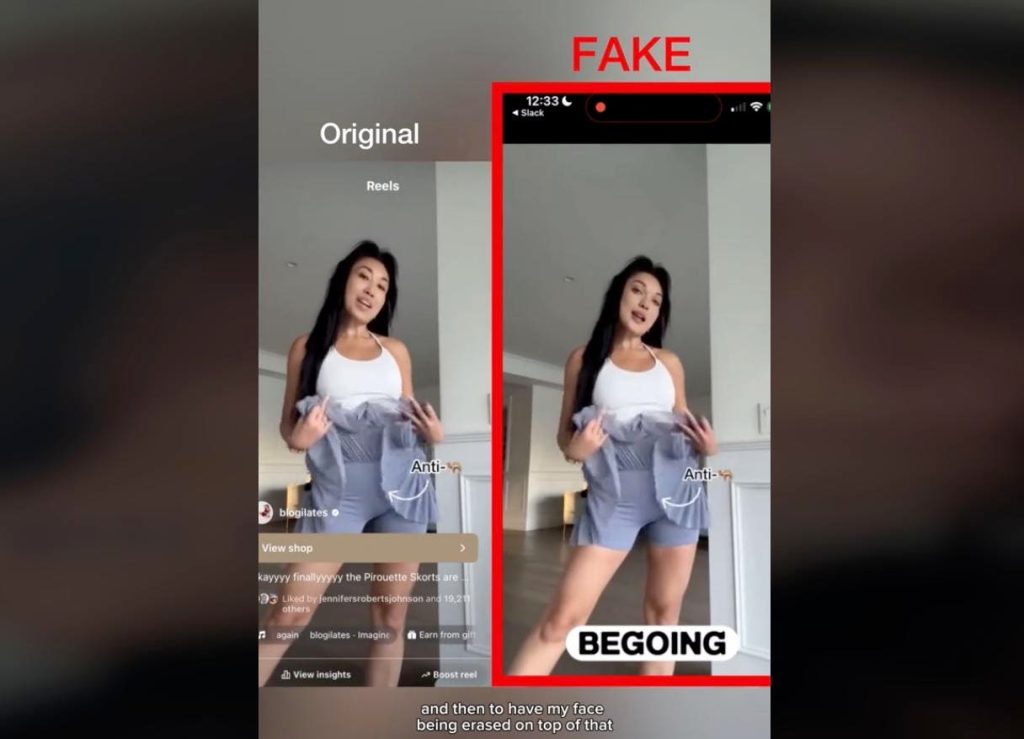Cassey Ho, the owner of activewear fashion label Popflex, recently discovered a new form of counterfeiting that left her feeling violated. A no-name brand on Amazon was selling a knockoff version of her skort, using her own video modeling the item but with her face swapped out for someone else’s. Counterfeiting has long been a problem in the fashion industry, but advances in AI are making the issue more prevalent than ever, with companies like Shein being accused of thriving on IP theft through the use of artificial intelligence and algorithms.
The use of deepfakes to sell knockoff products is a new and concerning development in the fashion industry. Mike Ryan, an analyst with Smarter Ecommerce, highlighted the difference between copying a product’s likeness and copying a person’s likeness, emphasizing the importance of both brand and personal safety. After Forbes flagged the counterfeits to Amazon, the company took down listings that had used Ho’s likeness to sell knockoff products. However, the label behind the counterfeit skort, Begoing, still has listings on both Amazon and Walmart, despite not responding to requests for comment.
Cassey Ho has been actively fighting against counterfeit products, which have become more prevalent and time-consuming to combat. She has accused companies like Shein of copying her designs in the past and recently discovered Popflex’s models and customer photos being stolen and used on Amazon listings for other dupes. Ho’s outside legal counsel, Cece Xie, explained the challenges of dealing with IP issues in the fashion industry and the additional hurdles posed by the unauthorized use of a person’s likeness in marketing materials.
The proliferation of AI-driven counterfeiting tactics presents a new challenge for designers like Ho, who are working to protect their intellectual property and prevent unauthorized use of their likeness. Juozas Kaziukėnas, CEO of Marketplace Pulse, suggested that the use of top videos on platforms like TikTok could lead to more instances of spammers modifying content to promote products without consent. Ho is exploring patenting her designs and working with AI detection companies, but the high cost of these services presents a barrier to fully addressing the issue.
The experience of Cassey Ho with counterfeit products and unauthorized use of her likeness serves as a warning for other designers and creators in the fashion industry. As technology advances, the risk of deepfake counterfeits and stolen marketing materials increases, challenging brands to stay vigilant in protecting their intellectual property. Despite the time and financial costs associated with fighting counterfeits, Ho remains determined to innovate and protect her brand from exploitation.













